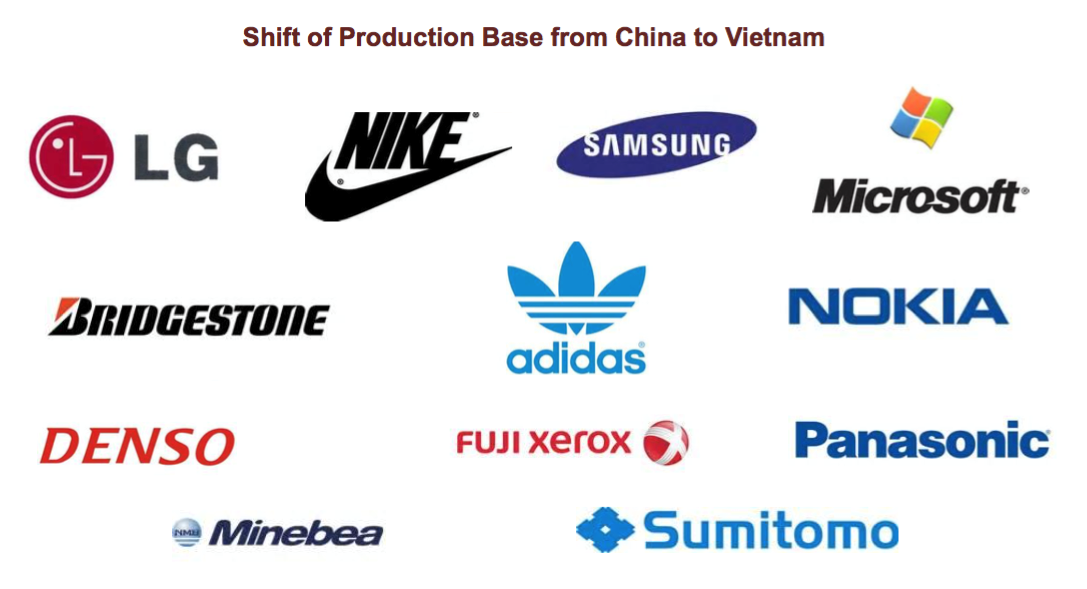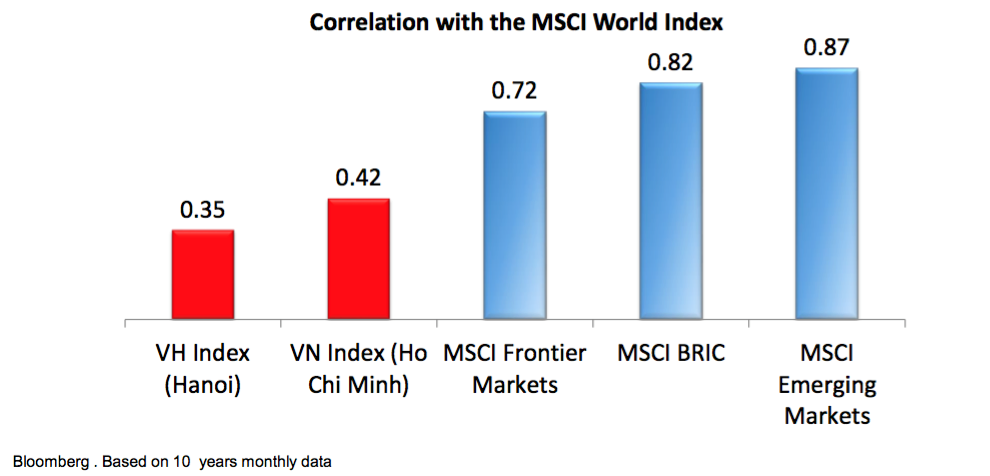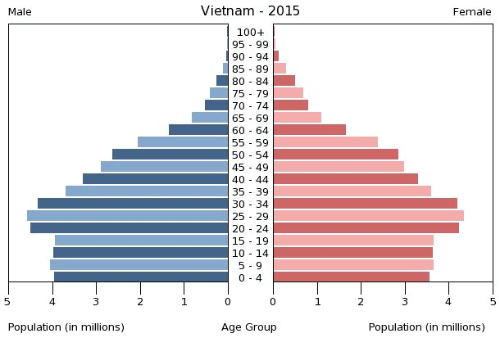President Barack Obama’s visit to Vietnam last week was the latest sign of warming relations with America’s one-time foe. This week’s Global Guru is a guest column by Asian expert Carl Delfeld which highlights the investment opportunities in this fast-growing Asian nation that easily rival those of the overleveraged Chinese market.
Wouldn’t it be great if you could create an ideal market to invest in out of thin air?
Right off the bat you would want lots of growth potential. Perhaps you also would want economic numbers like inflation and interest rates on a declining trend. In addition, political stability, low valuations coupled with low costs and increasing flows of capital also would be nice.
Of course, we will never find the perfect market. There is always risk with any investment and flaws to even the best story. But looking over the world right now, the best market I can find is Vietnam.
Let’s put the major negative to the Vietnam story out on the table. Like China, it has an authoritarian, communist government and all the negatives that come with it. Fortunately, investors have the flexibility to sidestep the country’s state-owned enterprises and focus on smaller private companies that are on a high-growth trajectory.
The list of Vietnam’s positives is really quite impressive. Here are just a few for starters: a low level of capital stock — so every dollar of investment yields big jumps in productivity; attractive demographics to fuel consumption; talented, well-educated and ambitious people with a great faith in their future; low real wages for a decisive competitive advantage; tremendous opportunities for market reforms to unlock blocked potential; and low valuations and rising, robust foreign investment to drive its industry and stock market forward.
Let’s take a closer look at some of these advantages.
Significant catch-up potential with neighboring countries
Vietnam has a long way to go before it can catch up with neighbors such as Thailand in terms of urbanization, per capita incomes, size of its stock market and manufacturing base. About 70% of Vietnamese still live in rural areas and are involved in agriculture. So just like during China’s rise, urbanization will supercharge growth and incomes.
Improving macro fundamentals & infrastructure
The country’s macro picture is considerably better than five years ago. Foreign reserves have tripled to $34 billion. Interest rates have come down from 20% to 8%. Inflation has fallen from 18.7% to just 0.6%. Meanwhile, annual economic growth has been pretty stable in the 6-7% range. Vietnam’s infrastructure is improving with 267,000 km of roads and 1.49 cell phones per person. The economy is well diversified and the country is rich in resources and has become an energy exporter.
Market reforms in banking and finance
Significant issues for Vietnam are bank debt and non-performing loans. The country is making incremental progress but much more needs to be done to open and modernize its financial system. It also needs to move forward on plans to privatize 289 state-owned companies. In addition, Vietnam has to rein in government spending.
Low stock valuations relative to competitors
For some reason, many of Vietnam’s large state-owned companies are expensive, but small- and medium-sized companies are a terrific value. The trailing price to earnings ratio for this group is just 7.8 compared to 26.9 in Indonesia and 21.3 in the Philippines. The Vietnam market index trades at just 1.1 times book value, while Indonesia is at 2.4 times book value and the Philippines is at 2.6 times book value. Vietnam’s market also offers enhanced value with a dividend yield of 6.3%.
Excellent demographics signal long-term growth of incomes and wealth
In contrast to China’s prematurely graying society, Vietnam’s population of 98 million is at a demographic sweet spot with an average age of just 27 years old. Plus, 70% of its population is under the age of 35. Wealth has risen at an annual compounded rate of 13.5% over the last decade — meaning Vietnam’s consumer and investor class is expanding every year. The literacy rate is 94%, with primary education improving every year.
Geographic and strategic importance at the heart of ASEAN
If the Trans-Pacific Partnership (TPP) passes muster, Vietnam likely will be the greatest beneficiary. As the recently founded ASEAN Economic Community (AEC) moves forward, intra-ASEAN trade, already growing fast, will gain even more momentum. Vietnam’s long coastline, positioned facing the South China Sea and shipping lanes that account for 40% of global trade, underlines its strategic importance. Vietnam’s cooperation with America is deepening as it seeks a hedge on China’s growing weight in the region.
Low-cost base for manufacturing and services
A wave of capital is washing over Vietnam that is driven by many factors, including wage rates significantly lower than in China. South Korean, Japanese, Chinese, American and European companies and their governments are falling over each other to establish manufacturing hubs and to seek better relations with Vietnam.
One example is the Japanese government’s recently announced $1.7 billion aid package to Vietnam. During the last three years, there has been more foreign direct investment flows into Southeast Asia than into China. Indeed, $60 billion of direct investment has flowed to Vietnam over the last five years with $14.5 billion in 2015 alone. In April of this year, foreign direct investment surged 85% year over year.
Below are some of the foreign investment projects announced during March of 2016:
Samsung R&D Center – $300 million
Zincox Resources steel plant – $115 million
Nestle’s 6th factory – $70 million ($520 million total)
LG Display doubling manufacturing base – $1.5 billion.
Here are just some of the blue-chip companies increasing production in Vietnam.

Add Vietnam to Lower Portfolio Risk & Volatility
Putting some Vietnamese holdings into your global portfolio offers another surprising benefit — it will likely lower portfolio risk and volatility. This is because Vietnam beats to its own drummer and moves in the same direction as world markets only about 40% of the time, while emerging markets move in tandem 87% of the time.

The Best Way to Invest in Vietnam
I oftentimes refer to emerging frontier markets like Vietnam as “motorcycle markets.” This is because there are so many more motorbikes on the road than cars. In Vietnam’s case, there are six times more motorbikes than cars, in part due to an import tariff on autos that starts at 100%.
The busy streets teeming with thousands of motorbikes zooming in and out of traffic reflect Vietnam’s most powerful edge — a youthful, ambitious people embracing more open markets and competition. In addition, 46% of Vietnam’s people are between the ages of 25 and 54, putting the country in an ideal position to take advantage of “catch-up” income and wealth-building opportunities.
This is also your opportunity.

With a literacy rate of 94%, energy independence and a new prime minister who is hard pressed to reform and privatize the state-owned companies that still represent 40% of Vietnam’s economy, the upside for investors certainly outweighs the risks.
Unfortunately, most advisors and gurus send investors interested in Vietnam to the VanEck Vectors Vietnam ETF (VNM). This is an epic blunder since this ETF includes sizable exposure to some of Vietnam’s largest, inefficient, state-owned companies that also happen to trade at pretty high multiples. This is reflected in VNM’s dismal performance — down 5% so far this year and down 26.8% over the last two years.
You definitely need to avoid this outcome by thinking bottom-up rather than top-down. Avoid the big state-owned banks and conglomerates and capture the vitality of Vietnam’s private enterprises.
The winning strategy is a diversified portfolio of small- and medium-sized private companies that are growing fast and are trading at very attractive valuations. This is the strategy of Asia Frontier Capital’s Vietnam fund. This fund is up 53% over the last 30 months for an annual gain of 19.2% since inception.
Asia Frontier Capital’s Vietnam Fund is domiciled in the Cayman Islands and is open to non-U.S. investors and tax-exempted U.S. investors. For more information on this fund, please click on this link.
The lesson here is to look beyond conventional wisdom. Look beyond China and country-specific ETFs that don’t capture the growth and vitality of countries such as Vietnam.
In case you missed it, I encourage you to read my e-letter column from last week about my two favorite dividend strategies. I also invite you to comment in the space below.




